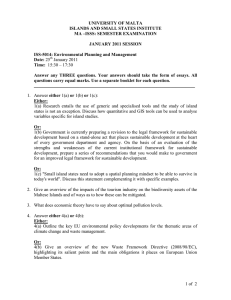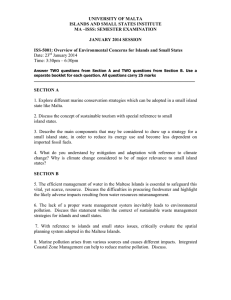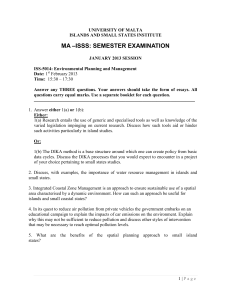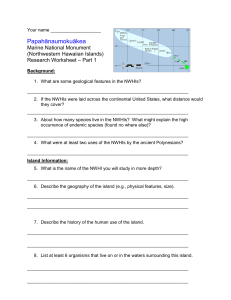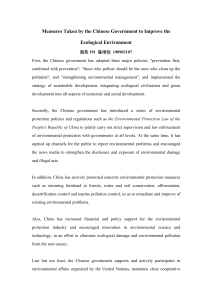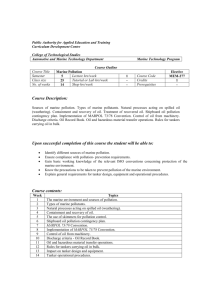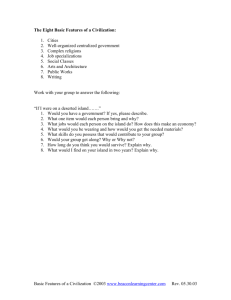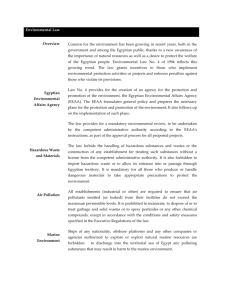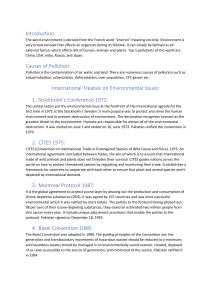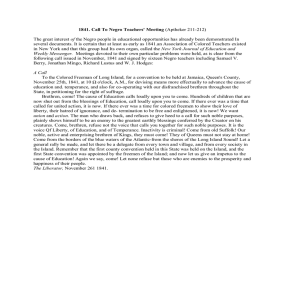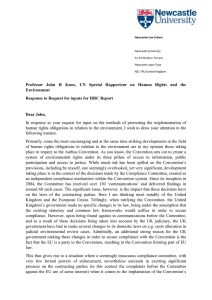UNIVERSITY OF MALTA ISLANDS AND SMALL STATES INSTITUTE MA –ISSS: SEMESTER EXAMINATION
advertisement
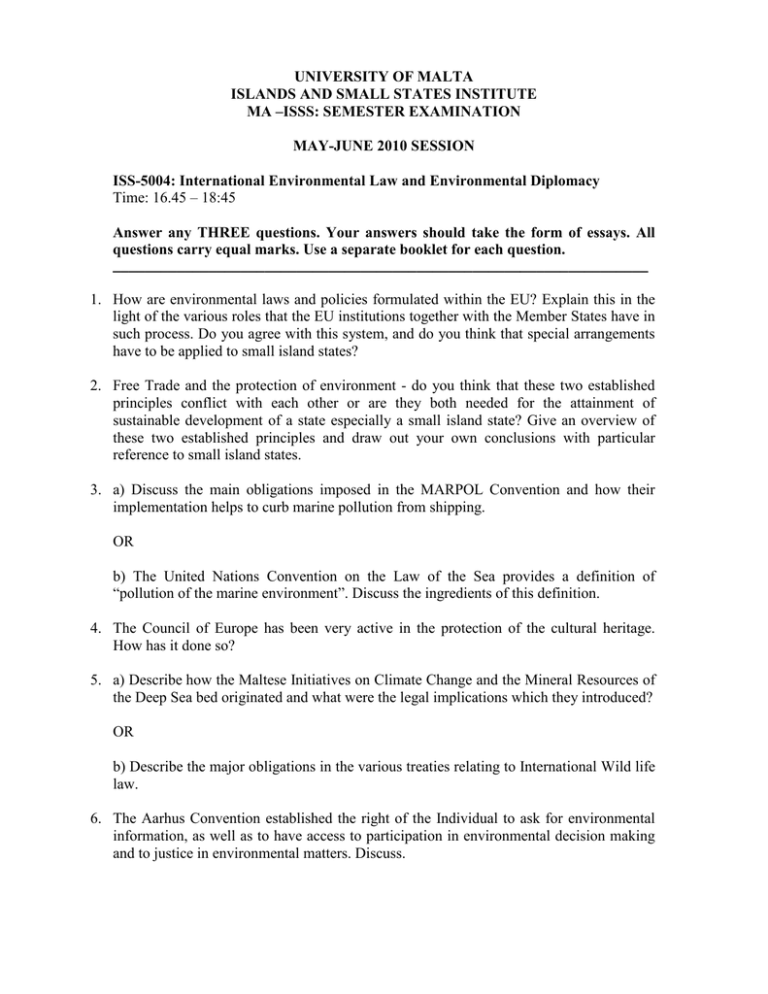
UNIVERSITY OF MALTA ISLANDS AND SMALL STATES INSTITUTE MA –ISSS: SEMESTER EXAMINATION MAY-JUNE 2010 SESSION ISS-5004: International Environmental Law and Environmental Diplomacy Time: 16.45 – 18:45 Answer any THREE questions. Your answers should take the form of essays. All questions carry equal marks. Use a separate booklet for each question. ___________________________________________________________________ 1. How are environmental laws and policies formulated within the EU? Explain this in the light of the various roles that the EU institutions together with the Member States have in such process. Do you agree with this system, and do you think that special arrangements have to be applied to small island states? 2. Free Trade and the protection of environment - do you think that these two established principles conflict with each other or are they both needed for the attainment of sustainable development of a state especially a small island state? Give an overview of these two established principles and draw out your own conclusions with particular reference to small island states. 3. a) Discuss the main obligations imposed in the MARPOL Convention and how their implementation helps to curb marine pollution from shipping. OR b) The United Nations Convention on the Law of the Sea provides a definition of “pollution of the marine environment”. Discuss the ingredients of this definition. 4. The Council of Europe has been very active in the protection of the cultural heritage. How has it done so? 5. a) Describe how the Maltese Initiatives on Climate Change and the Mineral Resources of the Deep Sea bed originated and what were the legal implications which they introduced? OR b) Describe the major obligations in the various treaties relating to International Wild life law. 6. The Aarhus Convention established the right of the Individual to ask for environmental information, as well as to have access to participation in environmental decision making and to justice in environmental matters. Discuss.
